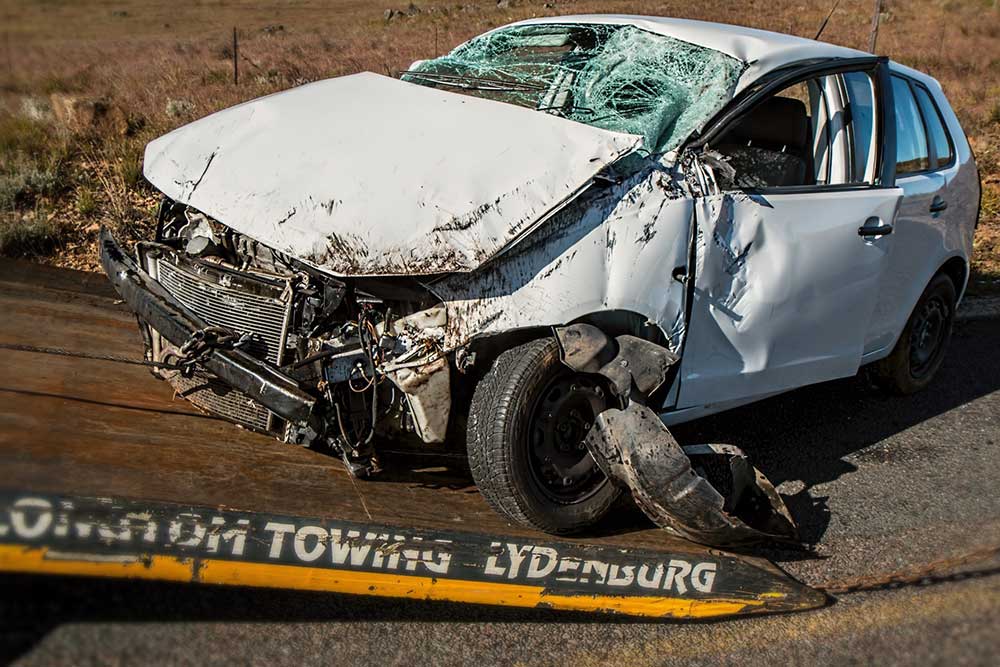
“I’m seeking compensation for pain and suffering!” You may have heard this phrase in legal films. While real life differs from movies, you can indeed seek compensation for both physical and emotional suffering after a car accident in Massachusetts.
However, our state has specific regulations regarding such claims. Not every victim of an accident will qualify for these damages.
Let’s discuss who can file for pain and suffering, how to calculate these non-economical damages, and what proof you need to secure fair compensation.
- How Massachusetts Measures Pain and Suffering Claims
- Do You Qualify for Pain and Suffering Compensation After a Car Accident?
- How Are Pain and Suffering Damages Calculated in Massachusetts?
- What Do You Need for MA Car Accident Pain and Suffering Claims?
- Get a Free Case Evaluation
- What Proof Do You Need for Pain and Suffering in MA?
- How to Maximize Chances to Win a Pain and Suffering Claim?
- Contact a Car Accident Lawyer to Get FREE Advice on Getting Maximum Claim!
- 30-Day, Risk-Free Guarantee
How Massachusetts Measures Pain and Suffering Claims
Recent car accident statistics in MA show that different types of crashes happen in our state, and each accident comes with a certain degree of pain and suffering, both physical and emotional.
Pain and suffering cover both the physical pain a car accident victim feels after they get injured and mental distress. Physical pain is the actual hurt they have in their body. Mental distress means the ways their mind and emotions are affected. This can be the feeling of fear or anxiety or not being able to enjoy the things they used to love.
There’s no straightforward method to determine the compensation for pain and suffering damages in Massachusetts. The courts consider different details in each case. They want to know the severity of the injury, the estimated duration of recovery, and whether any parts of the body will not heal completely.
They also evaluate how the injury has changed the person’s normal life. Of course, each of these aspects must be proved. For example, a doctor’s report detailing chronic pain or a therapist’s notes about anxiety symptoms can substantiate a claim for emotional suffering.
Physical Pain and Suffering
Physical pain and suffering go beyond just the quick jolt of an injury. For instance, a broken arm can cause intense pain during the break and persistent discomfort throughout the healing process. Chronic pain from a car accident can significantly complicate even simple chores like cooking or grocery shopping.
Moreover, physical pain and suffering may result in secondary health issues related to the main injury. Someone with a knee injury might start having hip issues since their manner of walking has been changed. These effects can last for weeks, months, or even years, and courts recognize that pain and suffering can impact every part of a plaintiff’s life.
Emotional Pain and Suffering
Emotional pain and suffering are about how trauma affects someone’s mind and spirit. After a motor vehicle accident, some people get anxious, like a passenger who becomes extremely nervous whenever entering a car. These feelings are real and can affect people’s lives as much as an injury.
Depression often accompanies a serious injury. Emotional struggle can steal a plaintiff’s joy, strain their relationships, and make them feel lonely.
Healing from emotional trauma takes time, and the law recognizes that these scars, although not so easy to see, matter too. Massachusetts courts recognize emotional trauma as a compensable form of suffering.
Do You Qualify for Pain and Suffering Compensation After a Car Accident?
Massachusetts operates under a no-fault insurance system, which requires accident victims to turn to their own personal injury protection (PIP) insurance for initial coverage of medical bills and lost wages. PIP is compulsory in Massachusetts and necessary to operate a motor vehicle legally.
However, they can still seek compensation for pain and suffering if their situation meets certain criteria. According to Section 6D of Massachusetts law, victims can qualify for car accident pain and suffering compensation in Massachusetts if their medical expenses exceed $2,000 or if the injury resulted in:
- A broken bone
- Substantial loss of hearing or sight
- Permanent and serious disfigurement
- Loss or impairment of a body part
- Loss of vision or hearing
- Death
If your case fits any of these scenarios, you can step outside the no-fault system and ask the driver responsible for the car accident for pain and suffering compensation. When you qualify, you can request compensation not only for physical pain but also for mental distress, loss of enjoyment in life, and other pain and suffering damages.
How Are Pain and Suffering Damages Calculated in Massachusetts?
How do courts figure out how much to pay for pain and suffering damages? It’s not just about totaling medical bills or counting missed work days. Pain and suffering calculations are inherently subjective, as the impact of injuries varies from person to person.
Even though money can’t take the pain and suffering away, it can help ease life after trauma. Courts aim to assign a monetary value that represents both the physical hurt and the emotional struggle someone has faced. There are two common ways that lawyers and insurance companies calculate pain and suffering:
- Per diem method
- Multiplier method
These methods provide a framework for understanding the worth of pain and suffering damages and create a starting point for negotiations. Let’s take a closer look at them.
Per Diem Method
“Per diem” means “per day” in Latin, and this method assigns a daily monetary value to a person’s pain and suffering.
Daily earnings are commonly used as a baseline for calculating the per diem method, though the dollar value may also be adjusted based on the severity of the injury. Next, they multiply this daily amount by the total number of days the person will potentially stay in pain.
For example, someone breaks their arm in a car crash. They earn $200 a day at work. The lawyer will use this wage to calculate how much to receive for car accident pain and suffering. The doctor says it will take about three months to heal, which means 90 days of dealing with pain and limited functionality in the arm.
$200 (daily compensation) x 90 (days in pain) = $18,000 for pain and suffering.
This method is less effective for cases with indefinite recovery periods or fluctuating pain levels. It also doesn’t fit cases with permanent injuries.
Multiplier Method
Insurance companies and lawyers consider medical bills and multiply this amount by a number between 1.5 and 5, depending on the severity of the injury.
For a minor injury that heals quickly, it might be 1.5, while for a serious injury that has long-lasting effects, it could go up to 5. Factors like the victim’s age, pre-existing conditions, and level of impairment also influence the choice of multiplier.
For instance, someone has $10,000 in medical bills from a car crash. Their injury is moderate, requiring surgery and physical therapy, but they will return to normal in about six months. In this case, car accident attorneys might choose a multiplier of 3.
$10,000 (medical bills) x 3 (multiplier) = $30,000 for pain and suffering.
Insurance companies often start with lower multipliers to keep costs down. Lawyers usually push for higher ones to get better compensation. The final amount usually falls somewhere in between, depending on the evidence and negotiation results.
What Do You Need for MA Car Accident Pain and Suffering Claims?
Everything starts at the car accident scene. Your first piece of evidence should be the police report. It jots down all the important details, like the exact location, road conditions, weather, and what each person involved in a crash says.
In addition, when you talk to insurance companies, you need to be careful. It might be tempting to say, “I’m fine,” just to be nice, but this can negatively impact your pain and suffering claim later. Stick to factual information about your condition, or let your personal injury attorney handle communications.
You need to see a doctor as soon as possible and follow their advice. Visit every appointment and take medications as prescribed. If you miss treatments, insurance companies might argue that you didn’t put in enough effort to heal.
Pain is personal — only you understand its depth. But courts and insurance companies want proof. Be honest about your pain, and keep your story straight. Don’t exaggerate your symptoms since this can damage your credibility. A single misstep might give the other side’s lawyers an opportunity to challenge your entire claim. At the same time, don’t minimize your pain and suffering.

Get a Free Case Evaluation
What Proof Do You Need for Pain and Suffering in MA?
Overall, here are the main types of proof you should provide to support your pain and suffering claim:
-
Medical records
This is your key evidence. Make sure your records link your injuries straight back to the accident. Showing you’re visiting the doctor regularly also proves that your pain and suffering still exist and that you require ongoing care.
-
Medical bills
You’ll need detailed bills for all your treatments. In Massachusetts, the total of these bills must exceed $2,000 to claim pain and suffering damages, with exceptions for severe injuries like disfigurement or broken bones.
-
Photos and videos
Pictures of your injuries, damage to vehicles, and the car accident scene help prove how serious the incident was.
-
Witness statements
Friends, family, and coworkers can describe how your injury changed your life. Their testimonials will demonstrate how the car accident has impacted your relationships, job, and daily life.
-
Expert opinions
Doctors, therapists, or other medical experts can predict how long your recovery will take and if you’ll have permanent problems.
-
Work records
These documents show missed work days and lost wages and help prove that the injury affected your career. This includes pay stubs, time off requests, and letters from your employer.
How to Maximize Chances to Win a Pain and Suffering Claim?
Even if you have some evidence to prove pain and suffering, insurance companies have teams of professionals who deal with similar cases every single day. Adjusters often downplay injuries, argue about liability, or highlight gaps in medical treatment to justify a lower offer.
This is why people often turn to car accident attorneys for assistance. Such a decision brings several advantages. A good Worcester personal injury attorney can identify insurance tactics. When an adjuster tries to misinterpret your statements, your lawyer can help clarify the situation. If a car accident settlement offer seems unfair, they know how to calculate pain and suffering damages and how much more to demand.
If your case goes to court, your attorney will present expert witnesses, provide medical evidence, and advocate for your pain and suffering case with aggression and the expertise gained from years of court experience.
Most importantly, having a lawyer means peace of mind. You can focus on your recovery, knowing that a professional will find the right solution for your case. Yet, the task that remains is to find the right lawyer for your case. Consider Michael Kelly Injury Lawyers.
Contact a Car Accident Lawyer to Get FREE Advice on Getting Maximum Claim!
Michael Kelly Injury Lawyers are a highly rated team of car accident attorneys in Massachusetts. More than 10,000 people have placed their trust in us, and we’ve turned it into tangible results. Check out our recent settlements so as not to take our word for it.
While insurance companies try to pay you less, we aim for more. We’re tough in negotiations with insurance companies. If they refuse to offer a fair car accident settlement, our professionals are ready to fight for your rights in court.
We’re here when you need us. Day or night, weekday or weekend — you can contact our team to talk about your pain and suffering case and get an honest recommendation. Your first consultation with us is free.






